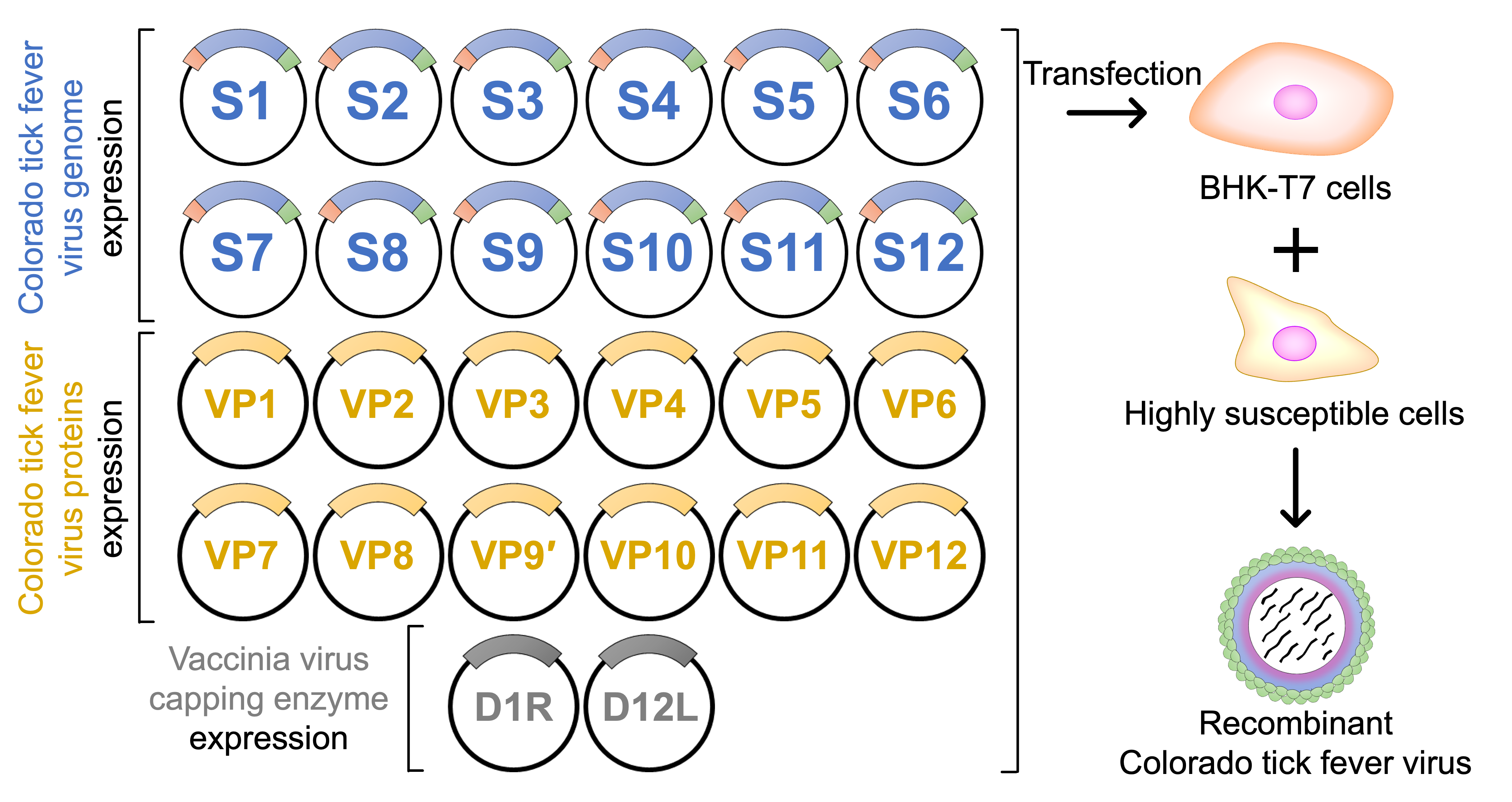Establishment of reverse genetics systems for Colorado tick fever virus(Kobayashi Lab, in PLOS Pathogens)
The Colorado tick fever virus (CTFV), which has 12-segmented double-stranded RNA genomes, is a pathogenic arbovirus that causes severe diseases in humans. However, little progress has been made in the analysis of replication mechanisms and pathogenicity. This virological constraint is due to the absence of a reverse genetics system for CTFV; therefore, we aimed to establish the system. Initially, the efficacy of CTFV replication was investigated in various cell lines. CTFV was found to grow in many cell types derived from different hosts and organs. Subsequently, BHK-T7 cells stably expressing T7 RNA polymerase were transfected with plasmids encoding each of the 12 CTFV gene segments, expression plasmids encoding all CTFV proteins, and a vaccinia virus RNA-capping enzyme. Following transfection, the cells were co-cultured with Vero or HeLa cells. Using this system, we rescued monoreassortants and recombinant viruses harboring peptide-tagged viral proteins. Furthermore, an improved system using Expi293F cells expressing T7 RNA polymerase was established, which enabled the generation of recombinant reporter CTFVs. In conclusion, these reverse genetics systems for CTFV will greatly contribute to the understanding of viral replication mechanisms, pathogenesis, and transmission, ultimately facilitating the development of rational treatments and candidate vaccines.
This article was published in PLOS Pathogens on Feb. 14, 2025.
Title: “Establishment of reverse genetics systems for Colorado tick fever virus”
Authors: Shohei Minami, Ryotaro Nouda, Katsuhisa Hirai, Zelin Chen, Tomohiro Kotaki, Yuta Kanai, Takeshi Kobayashi
Links
- Home
- Achievement
- Research Activities
- Establishment of reverse genetics systems for Colorado tick fever virus(Kobayashi Lab, in PLOS Pathogens)








